Amidst neighbors spraying chemicals from airplanes and 46% of food waste attributed to the food industry alone, Mustard Seed Community Farm seeks to foster a community in which everyone can participate in growing sustainably sourced, locally produced food.
The farm, located 15 miles northwest of Ames, is home to founders Alice McGary and Nate Kemperman. McGary, dubbed the farm’s “fearless leader” by staff, said she tries to farm for both the planet and the community.
“I think really, at a core level, that everybody needs really good food,” McGary said, calling food the “fundamental basic building block of the liberation of the world.”
McGary said she had often dreamed of starting a community farm.
“I had all these justice values and spiritual values, and I wanted to live in community and work together and be a cooperative farm that was based on ethical things,” McGary said.
In 2008, McGary, Kemperman and others found an acre of land to rent for $200 a year, a going rate for farmland at the time.
Five years later, after renting from one acre to and expanding to three, farm founders purchased the 11 acres of land Mustard Seed currently occupies.
Farm housing and close-knit community had always been a goal, McGary said.
“We built [our] house before we bought the farm,” McGary said. “Which was maybe a little foolish.”
McGary said, as with anything in life, self-started farming presents many obstacles.
“Farming is just crazy hard, and there’s a lot of work to do, but also just a ton of skills to learn,” McGary said. “And I think as a person who loves learning and thought of myself as pretty good at learning, I was like, ‘whoa, I’ve never had to learn so much so fast. Oh, I have to learn how to build a house, and it’s not the same as learning how to build a chicken coop.’”
The biggest challenge, McGary said, is navigating idealism through the cynicism of American culture. Her approach to farming calls world ethics into question, attaching a “why not” attitude to taking steps toward a sustainable future.
“[If] we think that the world would be better if we weren’t using so many fossil fuels or if we were trying to have a different economic system, and if we think that’s right or better than what we currently have, why don’t we just try?” McGary said. “Who cares if it’s gonna work? I mean, what we have isn’t working, the world as it is is imploding and harming so many people. Let’s try something else and just see what happens, and do it because we believe in it.”
Mustard Seed hosts workshop programs focusing on social justice, ecological living, human scale economics and farming.
“There’s a lot of things I believe in and there’s a lot of things we try to do, and it’s kind of crazy sometimes when I think about all the things we’re trying to do at the same time,” McGary said. “But I do think education is really important to us, and practical skills or just creating opportunities for people to experience being outside or being with food or being with each other.”
Farm team operations
Mustard Seed is inspired by Catholic Worker farms and follows the Community Supported Agriculture (CSA) model, meaning customers pay upfront to join the CSA for a whole growing season, and produce will be brought to them every week.
The group of farmers, volunteers and community members work to create an environment in which everyone can participate in growing, distributing and eating quality food.
“Together, [Catholic Worker] is a philosophy about love and every person having dignity and that our work should have dignity, and our work should be for good,” McGary said. “And our economics should be about goodness and love, and not competition and greed.”
Mustard Seed houses long and short term guests and workers May through October during the growing season. Local volunteers work on the farm almost every day during the growing months.
Amie Adams joined Mustard Seed as an intern in 2021, just before the growing season. After working and going to school virtually during the pandemic, Adams said she wanted to do something outside and be connected to real humans, plants and animals. After working at the farm nearly every day that summer, Adams said she fell in love with the farm and had no plans to leave.
Adams has been with Mustard Seed for three years and currently works as a Farm Team member. Adams said she had no experience growing food before interning with the farm.
“It was really cool to have the opportunity to do the internship with no experience necessary, and just enthusiasm being enough was something that was really wonderful for me,” Adams said. “I think that is a really special part about the farm that’s true for interns and anybody who comes out and volunteers, that as long as you’re curious, just being curious is enough.”
Adams said Mustard Seed’s emphasis on providing community care that extends to other people– and the farmland– keeps coming back each week.
“Just thinking about the prairie and the sheep, the cats and the chickens and feeling like we’re all trying to do something good together, something that’s good for our community and good for our little part of the world,” Adams said.
Adams said she often pictures the farm in the summertime, surrounded by rolling, contemplative cornfields.
“It’s this patch of something that feels really magical and really countercultural,” Adams said. “It’s really amazing to me to think about what a pretty small piece of land can produce, and just how many people it brings together in a sea of all of this corn and farming.”
Farm Team
At Mustard Seed’s core is its Farm Team; the farm currently has 20 team members who meet monthly to make decisions and work on developmental projects.
The Farm Team operates through a consensus model stemming from the Catholic Worker value of Personalism, where decisions and agreements are made unanimously.
“It’s really unusual,” Jen McClung, a Farm Team member, said. “It’s not a traditional way of governance, or running any kind of institution, so it’s taken me some time to adapt.”
While non-traditional, McClung said she thinks the farm is better for the team’s operational style.
“When we slow down and we say let’s thoughtfully talk about this as a community and really think about does this project or does this thing we want to do align with our values as a farm, as an organization, that’s what strives to support our community,” McClung said.
Most recently, Farm Team members made a decision to bring drinking water to the farm, as the previous well water was only safe for irrigation. McClung said she was part of a group researching rural water systems and planning infrastructure, who then brought research and recommendations back to the larger Farm Team.
“We said here’s what we’ve found, and here’s what we recommend doing, and then we had a discussion about that,” McClung said. “And then eventually we came to an agreement, and we were able to get rural water out to the farm.”
McClung said she first discovered Mustard Seed over seven years ago, after receiving an email asking for help picking extra strawberries.
“I came out on a Sunday and helped pick strawberries,” McClung said. “Then I had a bunch to take home, and I was kind of hooked from there.”
Now, nearly eight years later, McClung is a member of the Farm Team. During and after harvest season, volunteers and workers help arrange bouquets thanks to an effort by McClung, who said she took a much larger leadership role when she decided to add flowers to the farm growing operation.
In the early years McClung spent volunteering, she noticed a small window in the growing season where Farm Team members would plant Zinnias or other flowers.
“If we had time, we’d get around to cutting some of those things and making bouquets for our workshop members,” McClung said. “And that I thought was the thing that excited a lot of people about sort of the end of the harvest days like ‘oh, I get to take home flowers.’”
McClung said this led her to discover a love for flowers, and prompted her to consult the Farm Team on growing flowers as a yearly crop, “something that we focus our intentions on and devote some labor to.”
At the end of the 2022 season, McClung said it was clear growing flowers were serving both workshop members and members of the community, as bouquets were gifted to each organization Mustard Seed donates to.
“It occurred to me kind of through this process that flowers are actually really inaccessible for a lot of the folks that we serve, [they] are luxury items that a lot of folks can’t afford,” McClung said. “And I just feel so strongly that the beauty of flowers is something that everybody should be able to experience.”
Community impact
Produce from the farm goes toward the CSA and to farm workshares and donation sites, with occasional produce sold to Wheatsfield Cooperative.
According to McGary, Mustard Seed donates produce throughout the Ames community, including nonprofit organizations including Salvation Army and Wings of Refuge, shelters and soup kitchens such as Food at First and The Bridge Home, Harvest Vineyard Church and Primary Health Care.
Gift boxes with produce and flowers are also delivered directly to families’ homes, and partner with the Farm to Clinic gift food and nutrition program.
“I feel really grateful that I have this big, caring community that cares for each other, and I think it’s part of what we dreamed about,” McGary said. “And it’s not always easy, but it is encouraging, it’s uplifting. I think that maybe we’re helping people have that with each other.”

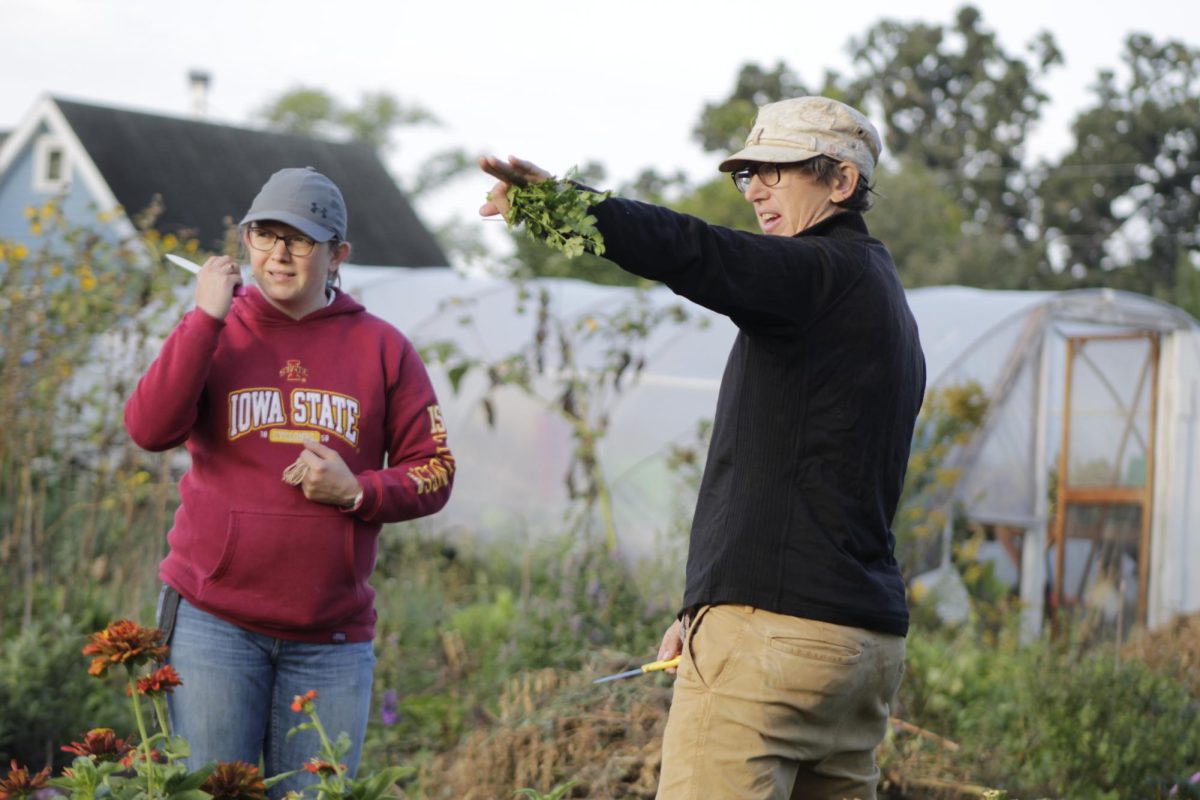
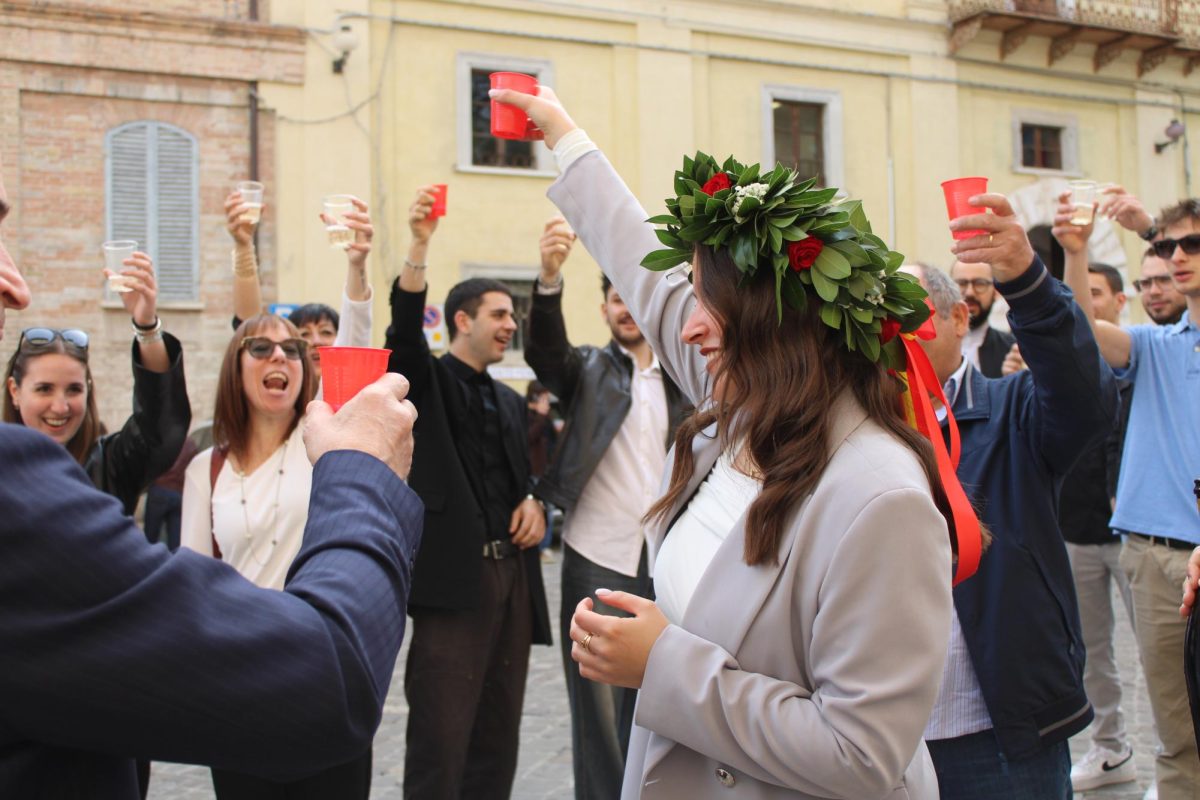


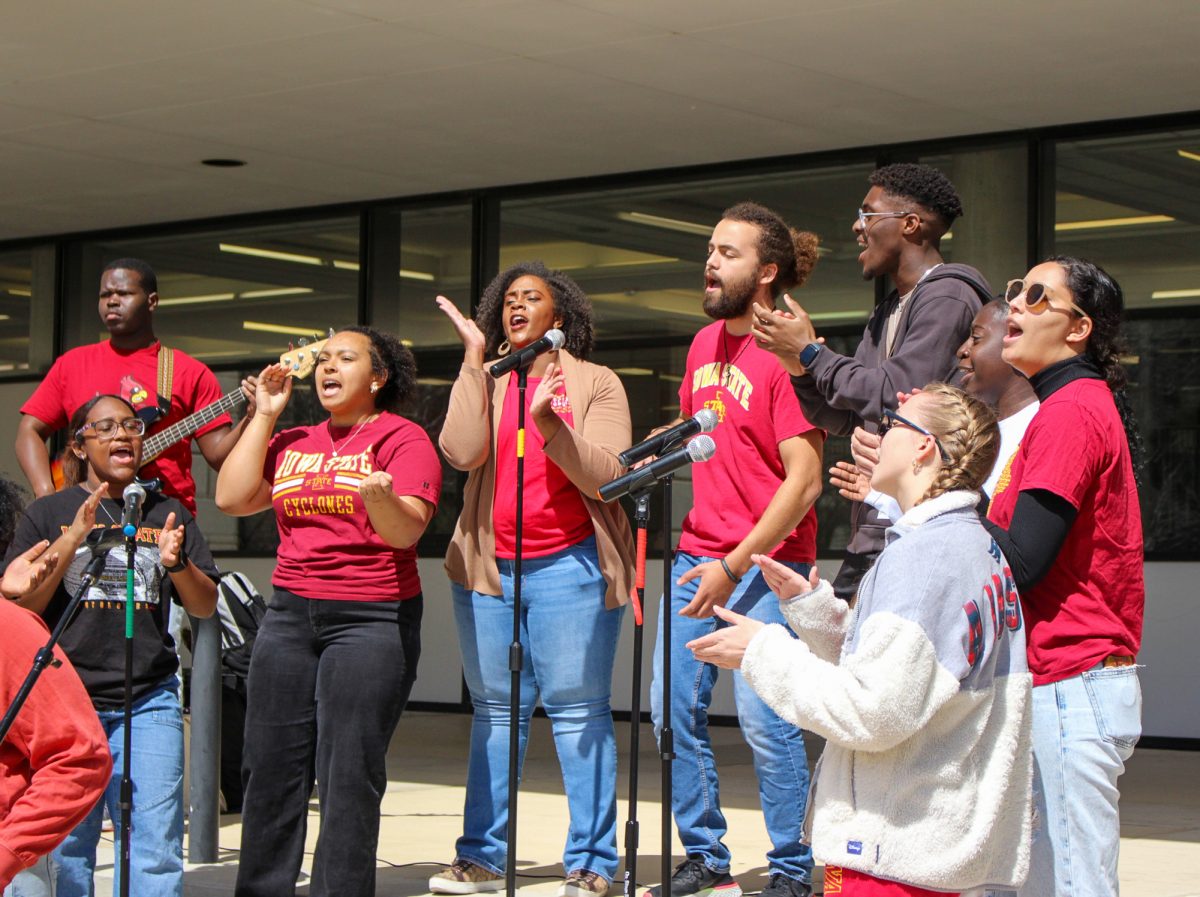

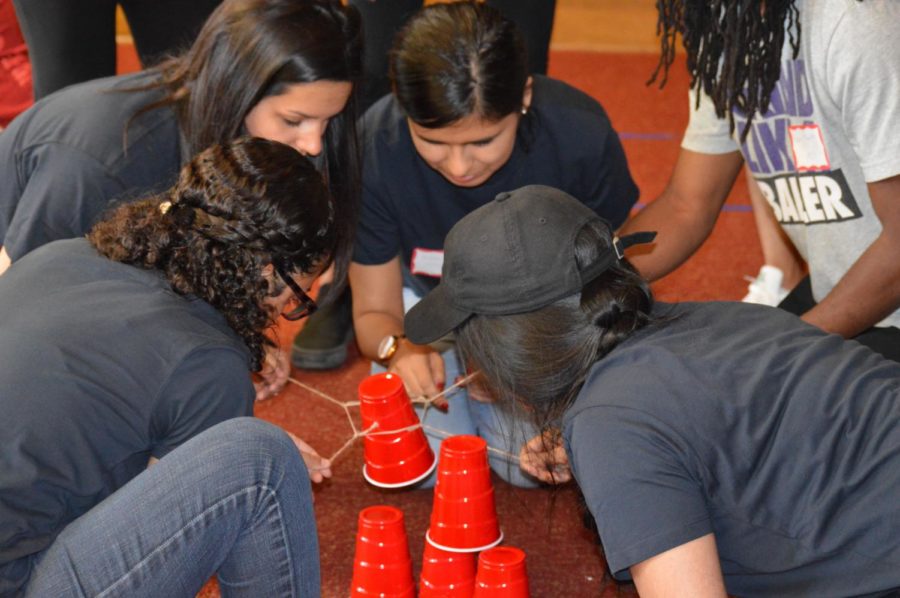

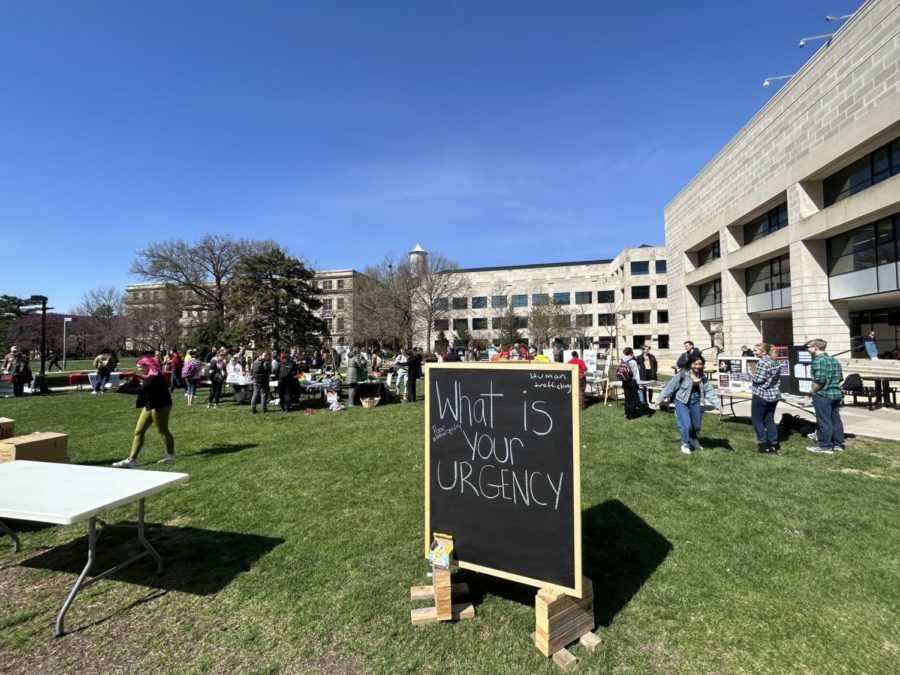

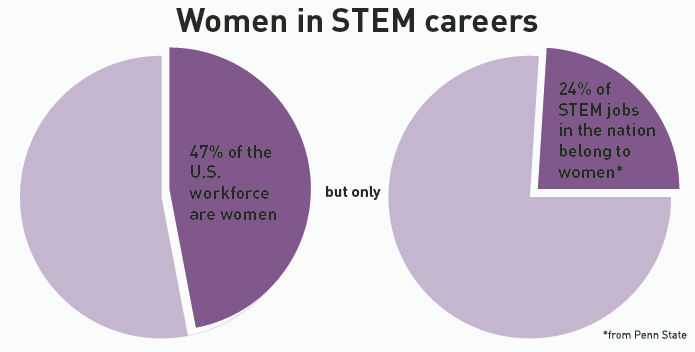
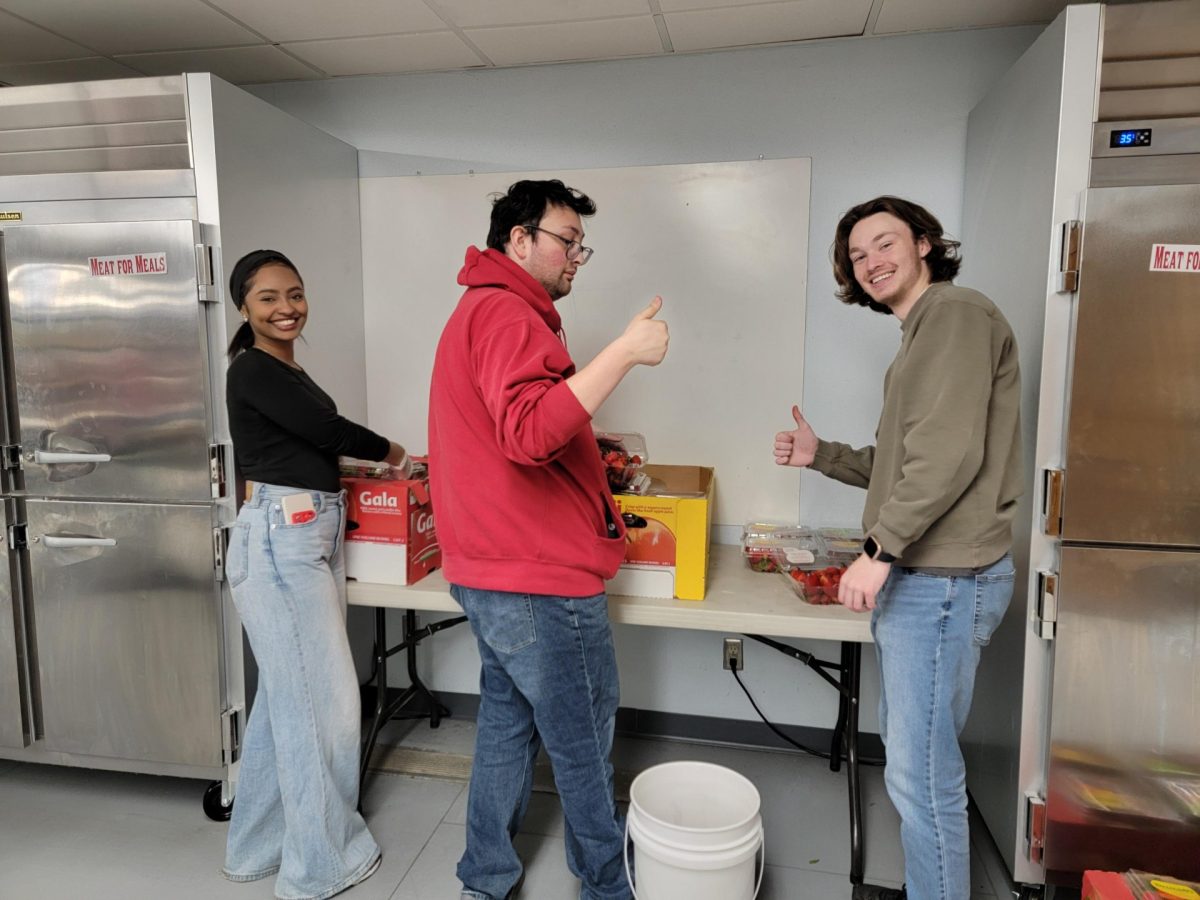
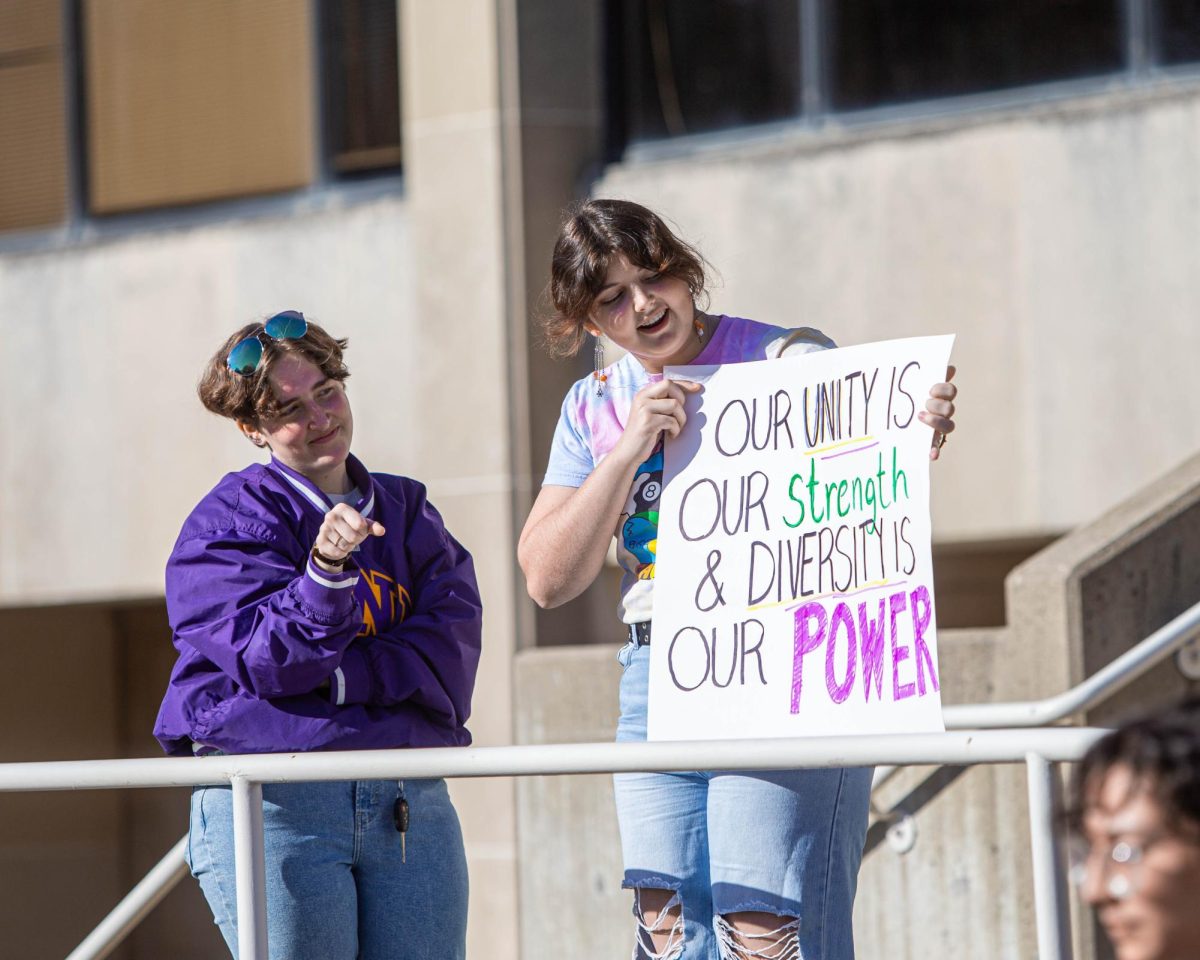

Erin Thompson | Jan 22, 2024 at 9:15 am
Wish there were more photos with this. Very word heavy. Opportunity to really showcase what they have done with the land and what is possible. Borrowed photos from them if there wasn’t an opportunity to take any.